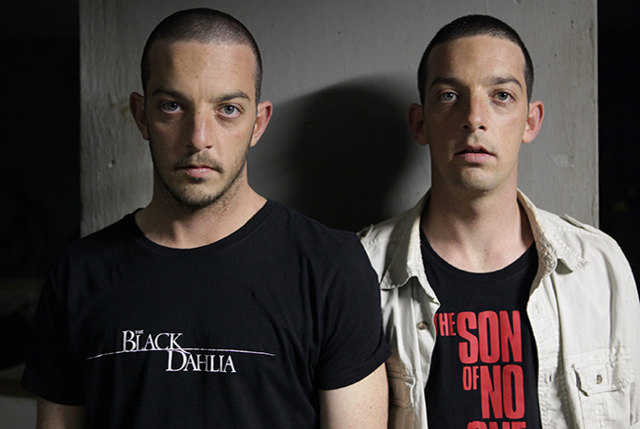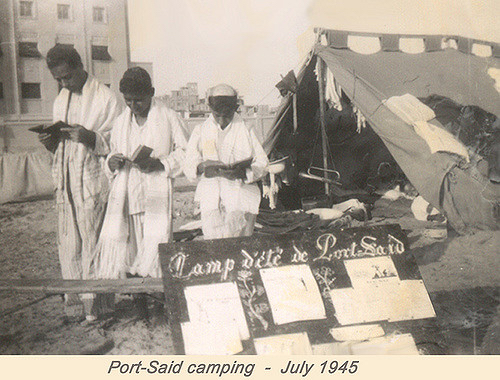As in 2012, the biggest winners of this year’s Jerusalem Film Festival were debuts by two young and promising directors. Tom Shoval’s Youth received The Haggiag Awards for Israeli Cinema for Full Length Film, and Maya Dreifuss’ She Is Coming Home received the Pirchi Family Award for Best Debut.
This is both good and bad. Good, because the two films serve as further testimony to the ongoing robustness of the small Israeli film industry; bad, because the other four films were much weaker, including two disappointing installments by veteran directors, who could not summon the energy that informed their earlier work. Overall, the small number of Israeli features in the competition this year evinces the diminishing importance of the Jerusalem Film Festival as a venue for new Israeli films. Ironically, it also points at the greater ease with which Israeli features find alternative, international venues and, indeed, the growing international recognition of Israeli films.
Shoval’s and Dreifuss’ titles are the latest example of Israeli cinema’s preoccupation with violence. Within this trend, a number of recent films have endeavored to explore the ways violence inform and shape not only the public sphere in Israel, most notably the conflict between Israeli Jews and Palestinians, but also the most intimate spheres of life. Meni Yaesh’s God’s Neighbors, winner of last year’s Pirchi Family Award, straddled the line between the private and the public. It followed a young Mizrahi born again Jew, who spends much of his time outside, with his friends, in a quest to “enforce public order,” which they interpret in light of their newly acquired Judaism. Simultaneously, however, he works to establish an intimate relationship with one of his neighbors. The film thus revolves around his struggle to create a peaceful, private space out of the violence that marks his public presence. Youth and She Is Coming Home take the question of violence a step further. Both leave the public sphere behind to focus on the violence that shapes and forms the family and, even more than that, an individual’s vision of the world and of her or himself.
As in God’s Neighbors, Shoval’s Youth, which premiered at the 2013 Berlin Film Festival, is set against the political, social and economic disenfranchisement of Mizrahi Israelis. They continue to slide down the class ladder, even as the Israeli economy—unlike so many of its Western counterparts—continues to grow, and are disproportionately represented amongst Israel’s poor. As in the earlier film, Shoval’s characters lead their lives in the periphery, close enough to view the glamorous life at the center of Israeli life, namely Tel Aviv, but unable to enjoy what it offers. Yet, whereas Yaesh offers an optimistic vision of how one can transcend (with divine help) his circumstances, Shoval’s film depicts a harrowing decline into violence and barbarism, as the maxim homo homini lupus est (“Man is a wolf to his fellow man”) emerges as Israel’s defining ethos.

The film tells the story of Yaki and Shaul, two teenager brothers, played by the real-life brothers Eitan and David Cunio. Strikingly alike in appearance, the film builds on their ability to impart, via facial expressions and bodily gestures, a sense of the dark violence inside themselves, that informs their relationship with each other as well as with their surroundings. Their father, the veteran actor Moshe Ivgy, has lost his job and, consequently, the family stands to lose its apartment. Credulous and incapable, the father is unable to pull himself and his family out of the downward spiral in which they find themselves.
The mother (played by Shirli Deshse,) takes on odd jobs, which do little to support her family. To help pay off the family’s debt, the two brothers decide to kidnap a high-school student for ransom. To this end, they take advantage of the fact that Yaki, the elder, has recently enlisted in the army, and is now in possession of a rifle. When Yaki comes home for a weekend leave, they carry out their plot, but things do not go as planned: their victim’s family does not pick up the phone, and so the two brothers cannot deliver their demand for ransom. As Yaki’s leave draws to an end, the two brothers have to decide what to do with their victim.
As noted, unlike most Israeli films, Youth is not so much about the tension between one’s duty to the nation (the military,) and duty to one’s family. In fact, the former plays a minor role only in the plot. Instead, the film focuses on the family and the forces that shape and mold it, forces that appear to be cut off from the national context in which Israeli films usually anchor their narratives. Herein lies Youth’s horror. The brothers respond to local circumstances, unable to grasp the bigger picture. Their relationship with a young high school student they kidnap thus vacillates unpredictably between tenderness and callousness, between care and abuse, keeping the denouement of the plot paradoxically both predictable and incalculable to the very end.

Maya Dreifuss’ She Is Coming Home likewise turns its gaze from the national to the familial. As its English title suggests, the film seeks to chart a path that reverses Lennon–McCartney’s She’s Leaving Home: Tali Sharon plays Michal, an award-winning filmmaker in her early thirties, who returns to her parents’ middle-class apartment after breaking up with her boyfriend. Once again in her childhood room, Michal finds herself in a disturbing limbo, a child and an adult at the same time, yet not truly a child, nor a real adult.
Not only does Michal have difficulties coming to terms with this “unnatural” turn in her life, but so do her parents, who are puzzled as to whether to treat her as a minor or not. Indeed, Michal’s return explodes the family scene. Her docile father has lost whatever authority he may have ever had, and her dolled-up mother is anxious about her aging body, as well as about her daughter’s apparent failure to find a suitable spouse, as well as career. Their deep dislike of each other surfaces at the sight of the prodigal daughter.
As she moves her things back, Michal crashes into the car of Ze’ev (the familiar Alon Aboutboul,) the principal of her old school, who has just returned from his reserve service. As in Youth, this encounter with national duty does not lead to an exploration of the conflict between the collective and the personal, but rather to an exploration of the personal that is alienated from the collective, and hostile towards its norms. Like the public sphere, personal life is molded by violence, but whereas the violence that informs politics is familiar, its private manifestations renders the intimate strange and horrific.
Michal is struggling to develop her next project, but is unable to do so in her new-old place. She finds refuge in a sadomasochistic affair with Ze’ev, which once again, positions her simultaneously as both a child and an adult. Provocative and confrontational, Michal’s bulging sexuality challenges both her partner and her parents, who are at a loss as to how to respond to it. Yet, the anxiety the film raises lies not so much in the effect of her sexuality, as in the fact that Michal is not fully aware of the forces that drive her, and the likely consequences of her behavior. Michal is as much the victim of these forces as she is enthralled by them.
Thus, the move from the public to the personal does not provide refuge from the gloom and hardship that underlies Israeli society. On the contrary, these two films suggest that such a withdrawal results in an even darker view of Israel. It’s a truly disturbing portrait.
Screenshots courtesy of Tom Shoval and Maya Dreifuss. All rights reserved.





